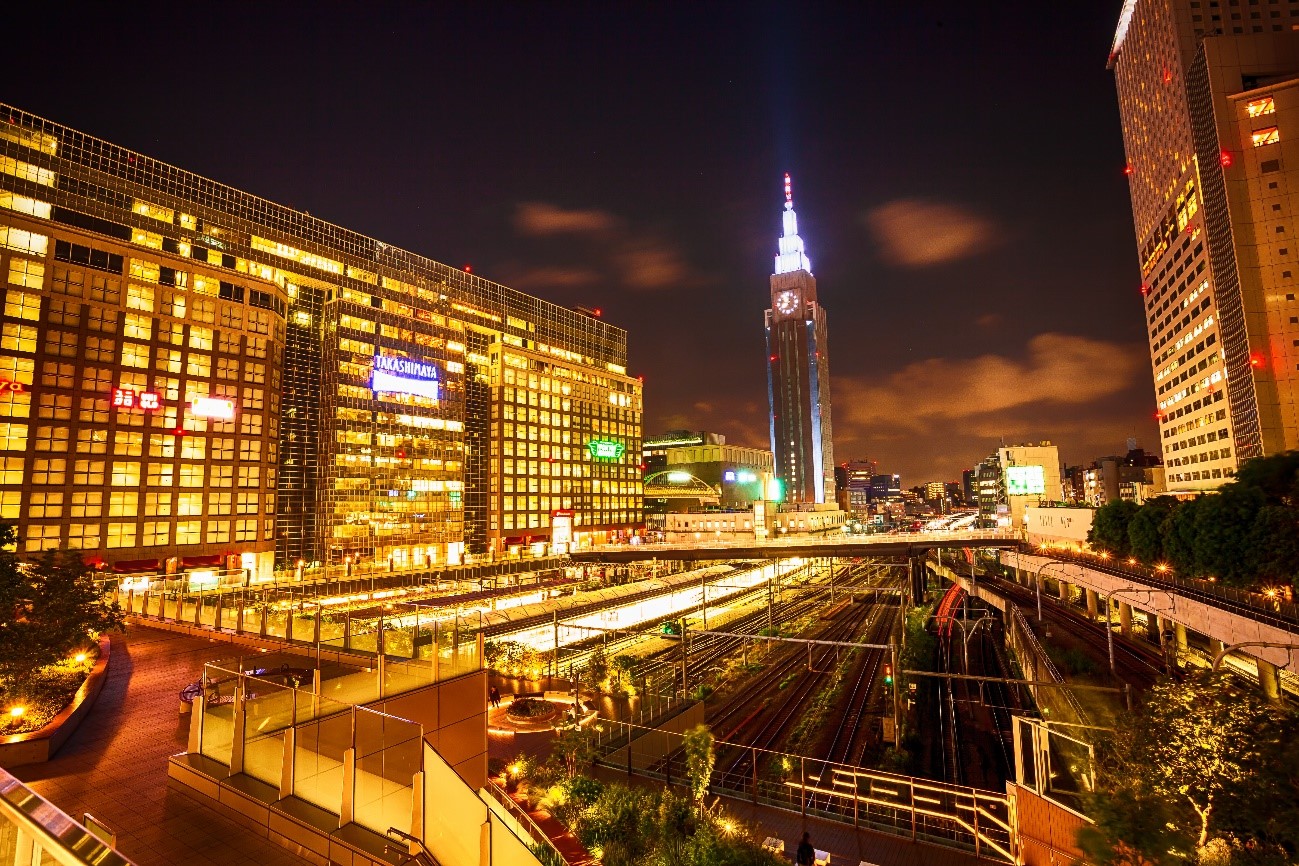Daytime Politeness, Nighttime Indulgence
Upon arriving in Japan, one is immediately struck by the politeness and order that define daily life. From convenience stores and department counters to hotel front desks, service staff greet you with practiced bows and the polite phrase “Arigato gozaimasu.” It feels healing—especially for those accustomed to combative social interactions.

In public, people maintain clear personal boundaries. Step into an elevator, and strangers will nod and make space. On escalators, everyone stands neatly on the left. On the subway, even a group of middle school students will keep their voices low, speaking in hushed tones rather than disruptive chatter.
At times, Japan feels like a vast, perfectly synchronized machine. Everyone seems to know their role, executing it with quiet precision. The social harmony is impressive—almost surreal.
But as night falls, a different Japan emerges—one that stands in stark contrast to the controlled grace of the day.
Nightlife as Release
Late-night meals often take Japanese family to small bars and yakitori shops—the only places still open. These spaces, filled with locals, became the perfect lens through which to observe Japan’s nightlife culture.

In these bars, we often found ourselves surrounded by loud, uninhibited energy. At one table, young women drank beer freely, laughing with piercing volume and lounging with their feet on the chairs. At the next, a group of young men mirrored that same chaotic energy—equally loud, equally drunk, equally emotionally unguarded.

This raw, late-night behavior stood in sharp contrast to the elegant restraint seen during the day. It seemed as though the extreme self-control required of Japanese society by day created a pressure that demanded release by night.
Behind the Image of the Ideal Woman
In the eyes of many outside Japan, Japanese women are often seen as ideal partners—gentle, well-mannered, and dutiful homemakers. They prepare perfect bento lunches, maintain spotless homes, and serve their families with quiet devotion.

But this image may be more performance than personality. Much of it is shaped by cultural pressure and the expectations of a highly disciplined society. Emotional repression, performed daily in the name of harmony and duty, often requires a counterbalance. Some of that tension finds its escape in the unfiltered behaviors seen in bars and clubs after hours.

The Business of Escapism
Nowhere is Japan’s nighttime duality more visible than in places like Kabukicho, Tokyo’s notorious red-light district. Here, the streets are plastered with advertisements for host clubs, many featuring pale, androgynous men with melancholic expressions and long, styled hair. This look—delicate, emotionally receptive—appeals to women seeking connection, not just charisma.

Host clubs have become emotional havens for women who feel unseen or undervalued in their daily lives. These venues offer not just drinks and flattery, but the illusion of understanding—something many are missing at home or in their personal relationships.
Meanwhile, men retreat to a parallel fantasy. In Akihabara, young women in maid costumes stand on sidewalks, inviting passersby into cafes where they’ll be addressed as “Master” and pampered with carefully scripted affection. It’s a niche industry, but an immensely profitable one.

Japan’s adult industry, too, is vast and mature—spanning multi-level shops packed with sex toys, adult magazines, and lifelike dolls. The same meticulous craftsmanship Japan is known for in electronics and cars is evident here, in the design of high-end fetish gear and silicone products.
The True Cost of Repression
Even more startling than the industry’s scope is its normalization. Sex-related businesses in Japan are legal and contribute around 1% to the national GDP—comparable in size to the country’s defense budget.
In stairwell alcoves of adult shops, one might even find lifelike inflatable dolls displayed like religious icons, half-draped in curtains. At first glance, they appear almost sacred—until you realize they’re not idols, but substitutes for intimacy, designed to meet the emotional and physical needs of a growing number of isolated individuals.
Japan’s cultural split—discipline by day, indulgence by night—does not stem from hypocrisy. It is a coping mechanism, a delicate balance between societal conformity and personal desire. This duality doesn’t undermine Japanese society—it sustains it.
But the question remains: how long can such a system rely on repression and escape, rather than balance and emotional truth?
Related Articles
You may also like...
International Hostess Bar Since 1993
夢
ORIGIN
・ International Hostess Bar since 1993
・ Japanese Hospitality with International Service
・ Diverse and Charming Floor Ladies
・Located in Shinjuku, Tokyo
・Transparent Pricing
・Easy Online Reservations


















-Aug-03-2024-02-44-14-8188-AM.webp)


